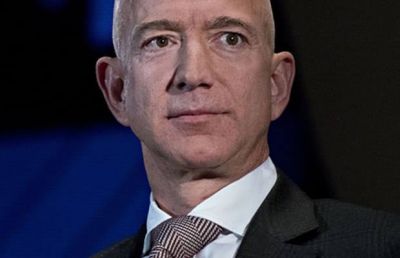When you should celebrate failure and when you should feel bad about it, according to the Amazon boss.
If there's one thing just about every super successful entrepreneur out there can agree on (besides a love of books), it's that failure is a necessary part of creating anything new and worthwhile. From Richard Branson to Elon Musk to Sara Blakely, just about every billionaire you admire has offered advice on how to get more comfortable with failure so you can achieve more.
That includes Jeff Bezos. As my Inc.com colleague Jason Aten pointed out, in last year's shareholder letter Bezos wrote, "If the size of your failures isn't growing, you're not going to be inventing at a size that can actually move the needle."
Failure is a necessary part of innovation, in other words, but a new book that collects Bezos' public writings and statements titled Invent and Wander: The Collected Writings of Jeff Bezos makes clear that doesn't mean all failure is to be celebrated. There are two kinds of failure, according to Bezos, and only one is something to be proud of.
Good failure vs. bad failure
Business Insider recently ran a collection of fascinating excerpts from the new book, one of which is particularly relevant to entrepreneurs who are trying to balance their fear of failure with the scale of their ambition. In it, Bezos digs deeper into the startup truism that you should welcome failure and argues there are actually clear boundaries to which missteps to celebrate and which to lament.
"I always point out that there are two different kinds of failure," Bezos writes. "There's experimental failure -- that's the kind of failure you should be happy with." These are the big, bold bets that either "move the needle" or involve a public face plant, things like the Fire Phone or Google+.
But Bezos also notes there's also "operational failure," and entrepreneurs should attach no mystique at all to these sort of misfires.
"We've built hundreds of fulfillment centers at Amazon over the years, and we know how to do that. If we build a new fulfillment center and it's a disaster, that's just bad execution. That's not good failure," Bezos explains. Extending your existing business is known territory and, if executed properly, should not involve much in the way of risk. If you screw up something you should already know how to do, that's nothing to celebrate.
The bottom line according to Bezos is that, "when we are developing a new product or service or experimenting in some way, and it doesn't work, that's okay. That's great failure. And you need to distinguish between those two types of failure and really be seeking invention and innovation."
So remember that distinction the next time you're either beating yourself up for a misstep or writing off a ruinous decision as just the price of your bold vision. The key question to ask is whether you were trying to do something genuinely new before you failed. If so, learn from your mistakes but don't feel bad about them. In fact take them as a sign you're thinking big enough.
If not, there's no glory in failure. When you fall short at something that should have been knowable and doable with foresight and effort, you just messed up. The right response isn't to shrug off failure as the price of being bold in business, but to feel the pain of falling short and let it push you to do better next time.
Inc

